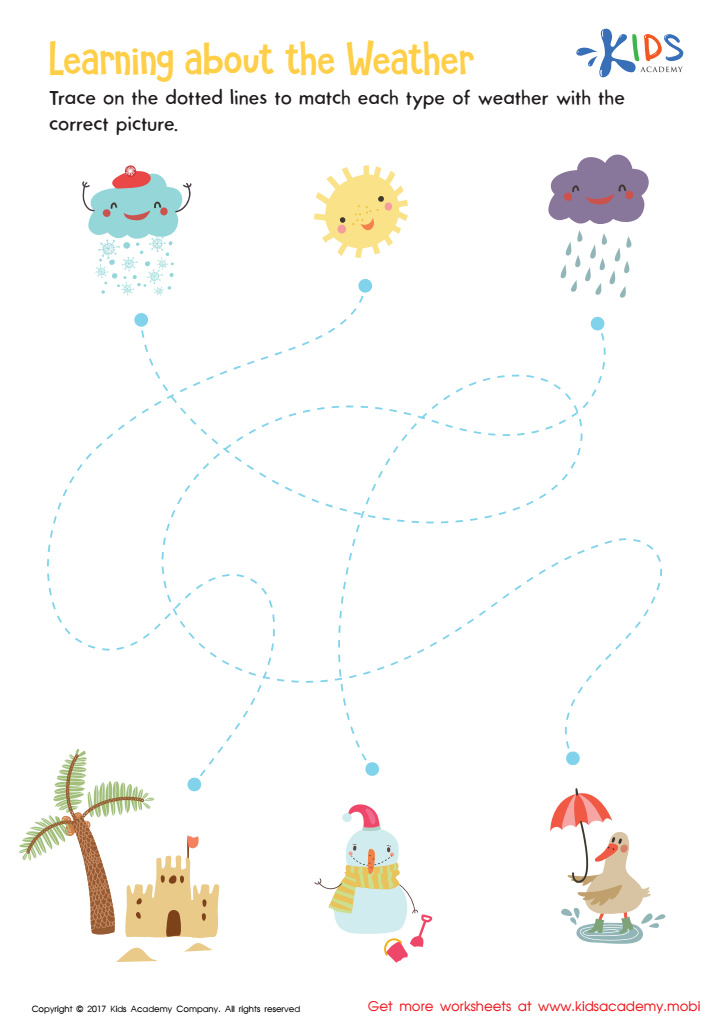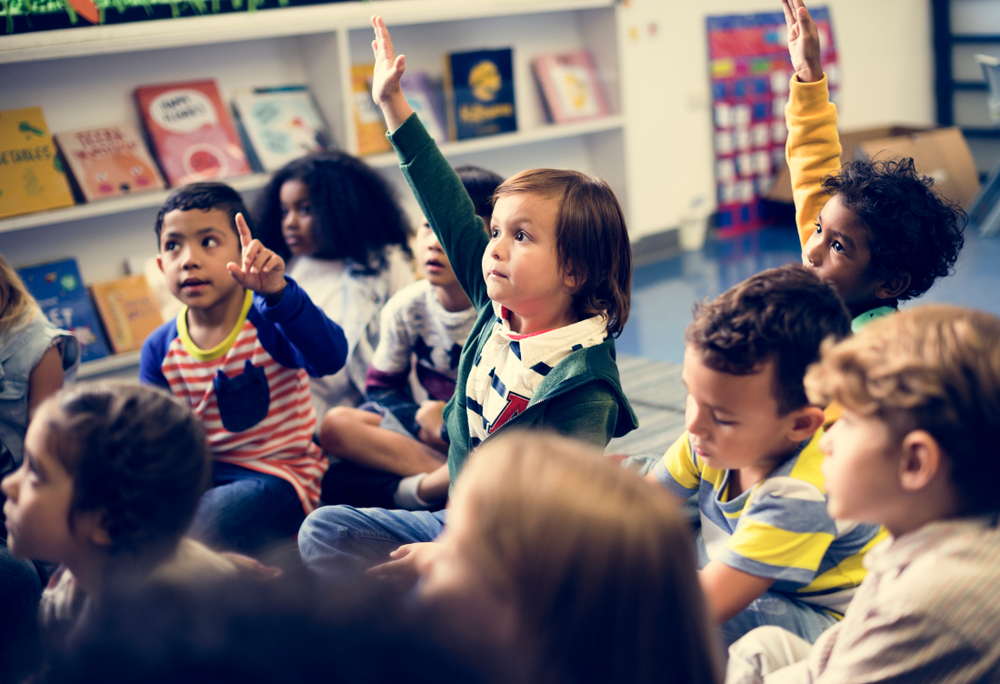Vocabulary development Science Worksheets for 5-Year-Olds
6 filtered results
-
From - To
Discover a collection of engaging vocabulary development science worksheets designed specifically for 5-year-olds! These activities combine fun and learning, helping young learners expand their vocabulary while exploring exciting scientific concepts. From familiarizing them with common terms to enhancing their understanding of the natural world, our worksheets promote critical thinking and encourage curiosity. Each sheet is crafted to align with early childhood education standards, making vocabulary learning both enjoyable and effective. Ideal for at-home learning or classroom use, these worksheets provide a wonderful opportunity for parents and teachers to support children's language growth through interactive science adventures. Start your child's vocabulary journey today!
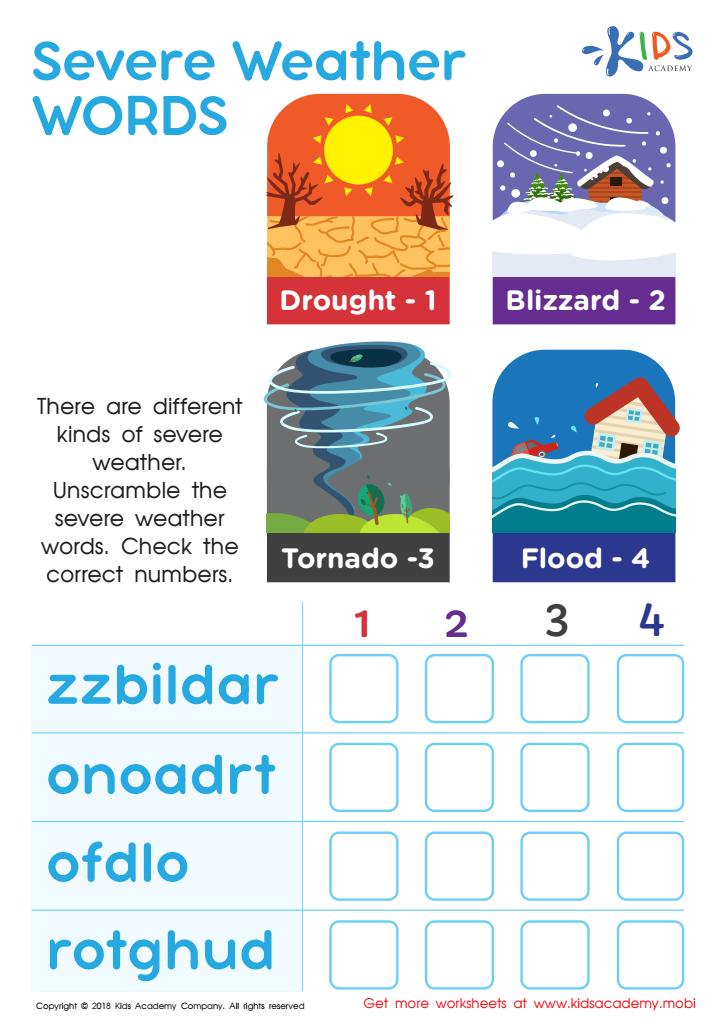

Severe Weather Words Worksheet
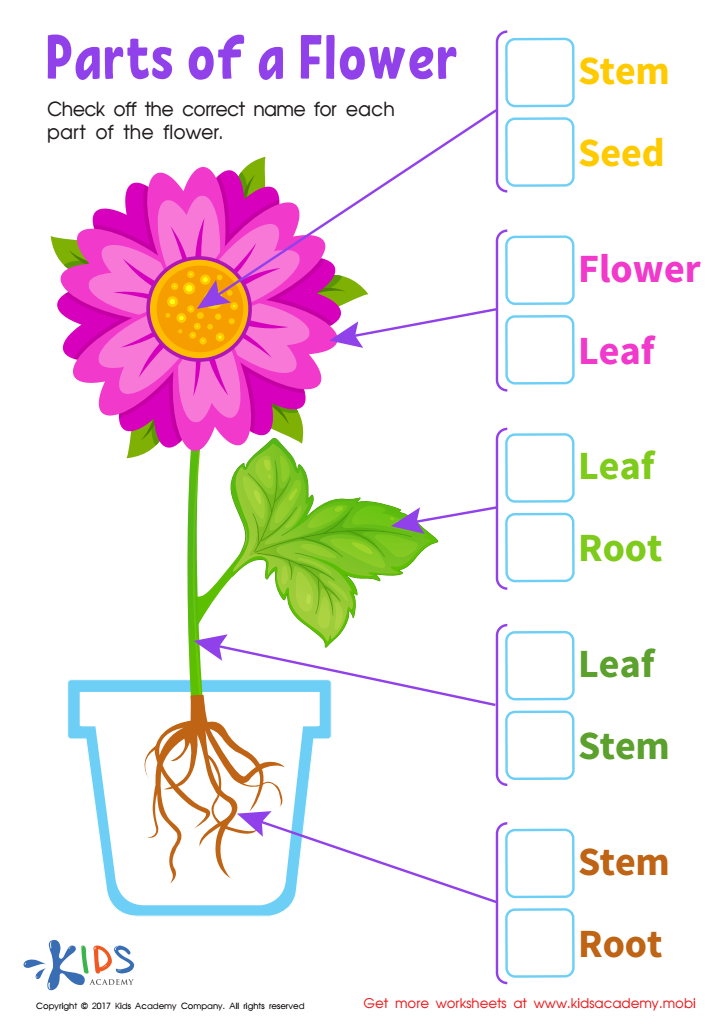

Parts Flower Printable
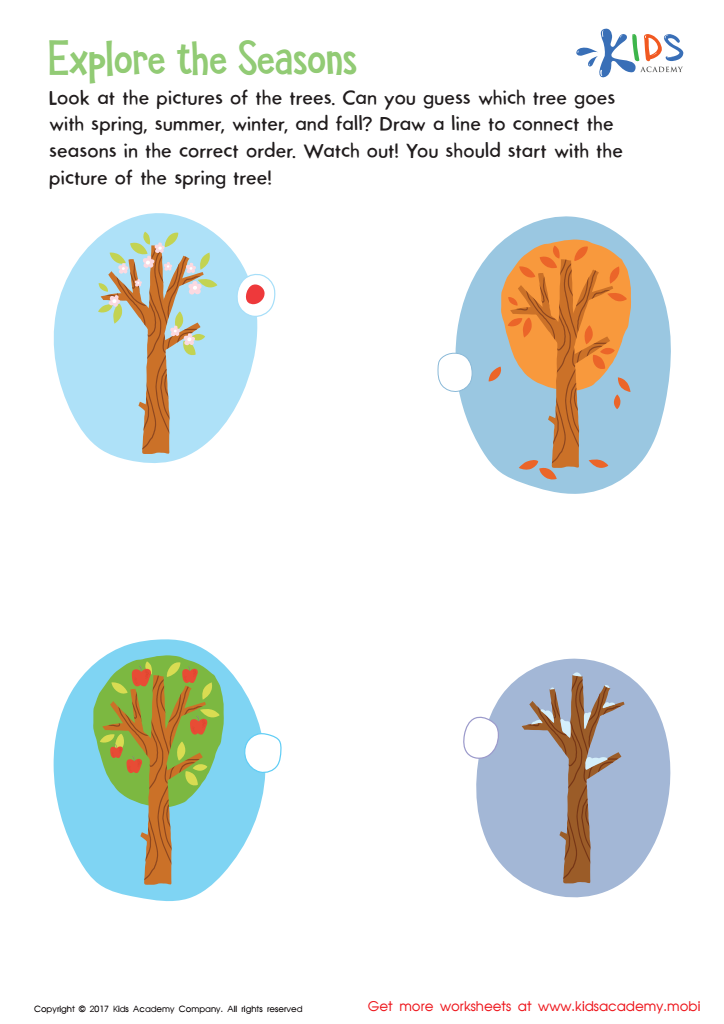

Explore the Seasons Worksheet
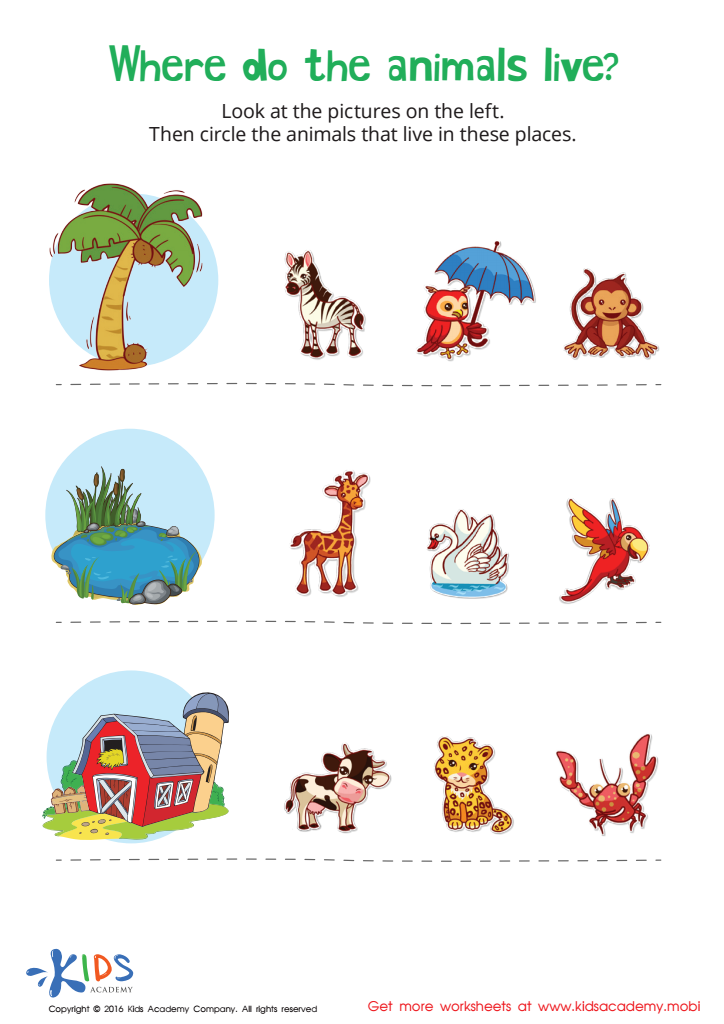

Where Animals Live Worksheet
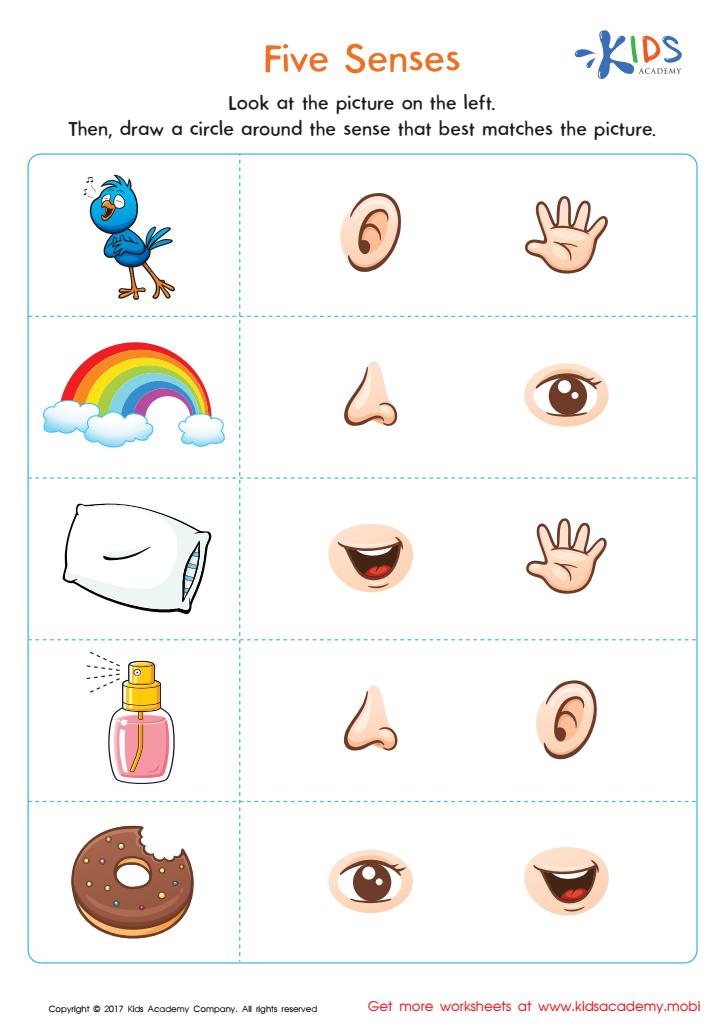

Five Senses Printable
Vocabulary development in early childhood, particularly for five-year-olds, is crucial for several reasons, especially when it intersects with scientific concepts. At this age, children are naturally curious about the world around them, and fostering their vocabulary in science not only enhances their understanding of various phenomena but also encourages critical thinking and cognitive development.
When parents and teachers focus on vocabulary development in science, they help children articulate their observations, ask questions, and describe their experiences. Words associated with science—such as "gravity," "ecosystem," "force," and "experiment"—enable young learners to engage meaningfully with concepts that underpin their exploration of the world.
Moreover, a rich vocabulary boosts literacy skills, aiding in reading and comprehension as children advance in their education. By integrating vocabulary development into interactive and hands-on science learning experiences, adults can inspire a lifelong interest in STEM (Science, Technology, Engineering, and Mathematics) fields.
Ultimately, attending to vocabulary development in science is an investment in a child’s overall academic success, curiosity, and ability to express themselves, making it a vital focus for both parents and educators.
 Assign to My Students
Assign to My Students
